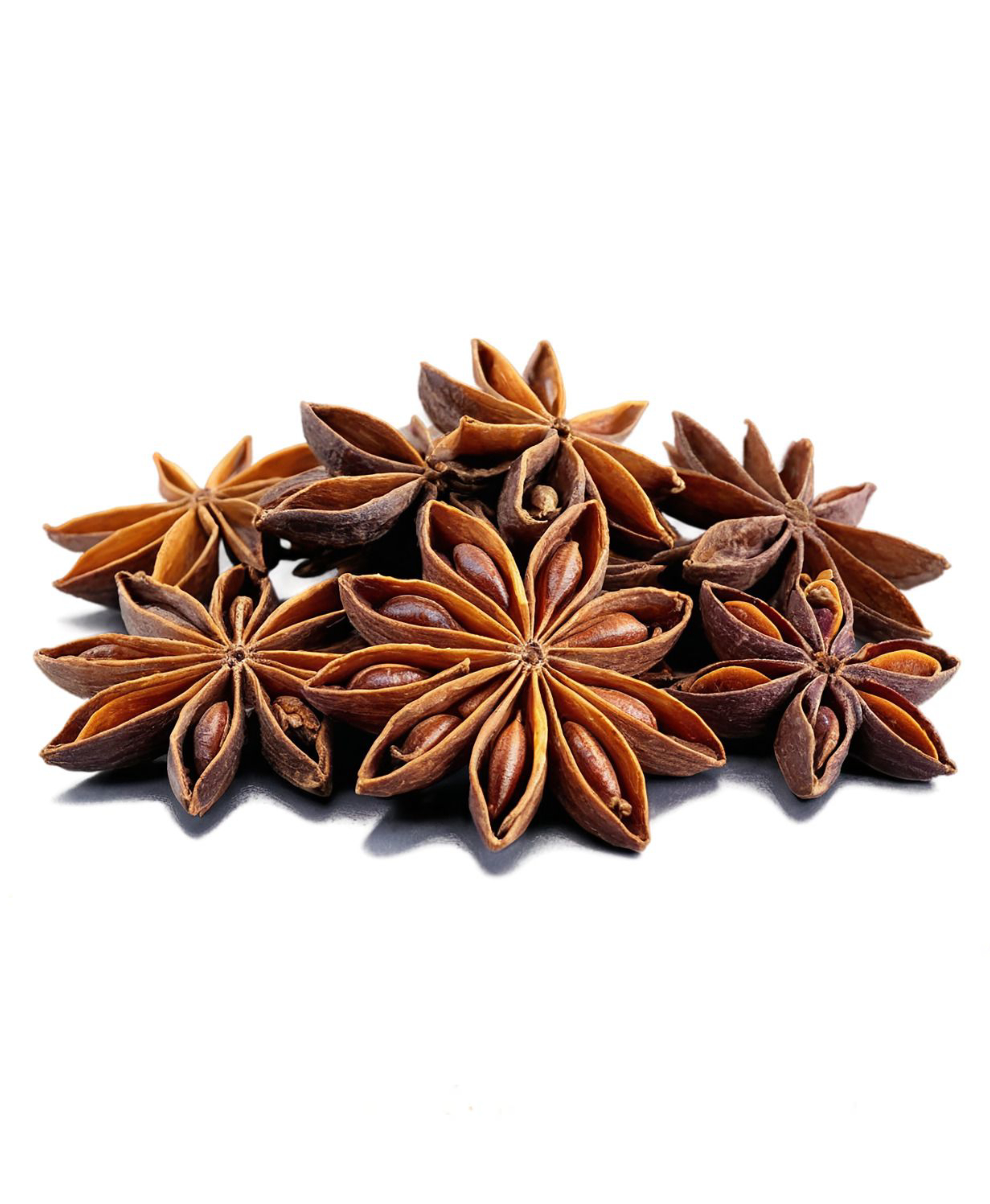Star anise (Illicium verum) is a star-shaped spice that comes from the dried fruit of a small evergreen tree native to Northeast Vietnam and Southern China. Its unique appearance, with eight pointed petals forming a star, gives it its name. The spice has a strong, sweet, and licorice-like flavor, primarily due to the compound anethole, which it shares with other aromatic spices such as fennel and anise. Star anise is often used whole or ground and is a key ingredient in many Asian cuisines, particularly in Chinese, Vietnamese, and Indian dishes. It is also an essential component in Chinese five-spice powder and is used to flavor broths, stews, meats, and even desserts.
In addition to its culinary uses, star anise is valued for its medicinal properties. It has been traditionally used in herbal medicine to treat digestive issues, such as bloating, nausea, and indigestion, and is believed to have antimicrobial, anti-inflammatory, and antioxidant effects. Star anise is also known for its potential to boost immunity and alleviate respiratory issues, and it has been used to make essential oils and teas. Its distinctive flavor and health benefits make it a versatile spice that is widely appreciated in both cooking and traditional medicine. However, star anise should be consumed in moderation, as the fruit from the Illicium anisatum plant, often referred to as Japanese star anise, is toxic and should not be used in cooking.
